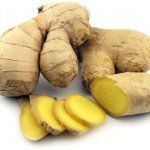 (NaturalHealth365) Many doctors tell their patients to take an aspirin a day to prevent heart disease. It’s become such an accepted practice that I see patients in my clinic who started taking it on their own just because they figured it was a “good idea.”
(NaturalHealth365) Many doctors tell their patients to take an aspirin a day to prevent heart disease. It’s become such an accepted practice that I see patients in my clinic who started taking it on their own just because they figured it was a “good idea.”
I tell them to stop. Don’t get me wrong – aspirin is one of the safest over-the-counter drugs out there. But, you’ll need to know more to make an educated decision.
What are the risks of aspirin?
Keep in mind, aspirin is still a drug. So that means there are still some risks involved with its use. The main risk is excessive bleeding. Other risks include kidney and liver failure, ulcers, tinnitus and hemorrhagic stroke if you use it too much.
During my travels around the world, I’ve found natural remedies that work as well, or even better, for heart health. Some are exotic. Others you probably already have in your kitchen… like ginger.
Most people think of ginger as a remedy for an upset stomach. But it does so much more.
Ginger is good for your heart
Taking a little bit of ginger every day can give your heart a real boost. That’s because it contains 12 antioxidant compounds more powerful than vitamin E. Antioxidants combat free radicals in your body. And flavonoids, a type of antioxidant found in ginger, are especially good for your heart.
One study looked at the dietary flavonoid intake of 1,400 men. Researchers found that the men who got the least amount of flavonoids had the worst carotid artery diameter and the highest risk of heart disease.
Ginger is good for your heart in other ways, too. Research shows it reduces oxidation, which can inflame the lining of your arteries.
The amazing health benefits of ginger
In one study, researchers divided 40 participants into two groups. Half were healthy. The other half had a history of coronary artery disease. One group received 5 grams of ginger powder each day, and the other received a placebo. After four weeks, oxidation had decreased by 18% in the healthy group and 23% in those with a history of heart disease.
Like aspirin, ginger works as a blood thinner. And that means it prevents clots from formingthat could lead to heart attack or stroke.
Studies also show that ginger has anti-inflammatory properties. It works the same way aspirin does, by blocking COX-2 — the enzyme that promotes inflammation. And inflammation is the leading cause of heart disease and other chronic illnesses.
Improving your heart health with ginger
If you want to take a ginger supplement, look for a capsule or pill that contains 5% gingerols. You can find ginger supplements online or at most health food stores. I recommend starting with a dose of 100 mg per day.
But I prefer using fresh ginger root in my cooking. To me, one of the best things about ginger is its distinct flavor. It adds a real kick to any meat or vegetable dish and is especially good in stir-fries. You can even sprinkle some grated ginger on top for more flavor and heart-healthy benefits. (That’s what I do.)
I also enjoy ginger tea. You can make it at home in just five easy steps:
1. Boil 4 cups of water in a saucepan.
2. Peel a 2-inch piece of fresh ginger root and slice it into thin slices.
3. Add the ginger to the boiling water.
4. Cover it, reduce the heat, and let it simmer for 15-20 minutes.
5. Strain the tea. Add honey and lemon to taste… and enjoy!
Ginger is a safe and natural substance. But because it has blood-thinning properties, you should talk to your doctor if you are currently taking any other blood-thinning medications before you start taking a daily ginger supplement.
About the author: Al Sears, MD is a medical doctor and one of the nation’s first board-certified anti-aging physicians. Dr. Sears is also a board-certified clinical nutritionist, strength coach and ACE certified fitness trainer, enjoys a worldwide readership and has appeared on more than 50 national radio programs, ABC News, CNN and ESPN. For more information about Dr. Sears – visit: AlSearsMD.com
References:
Kikuzaki H and Nakatani N. “Antioxidant Effects of Some Ginger Constituents.” Journal of Food Science.
2006;Volume 58 Issue 6, Pages 1407 – 1410
Mursu J et al (2007) The intake of flavonoids and carotid atherosclerosis: the Kuopio Ischaemic Heart Disease Risk Factor Study. British Journal of Nutrition, Apr 30, 1-5
Verma, SK et al. “Antioxidant property of ginger in patients with coronary artery disease.” South Asian J Prev Cardiology. 2004;8(4)
Dugasani S, et al. “Comparative antioxidant . . .effects of [6]-gingerol, [8]-gingerol, [10]-gingerol and [6]-shogaol.” J Ethnopharmacol. 2010;127(2):515-20